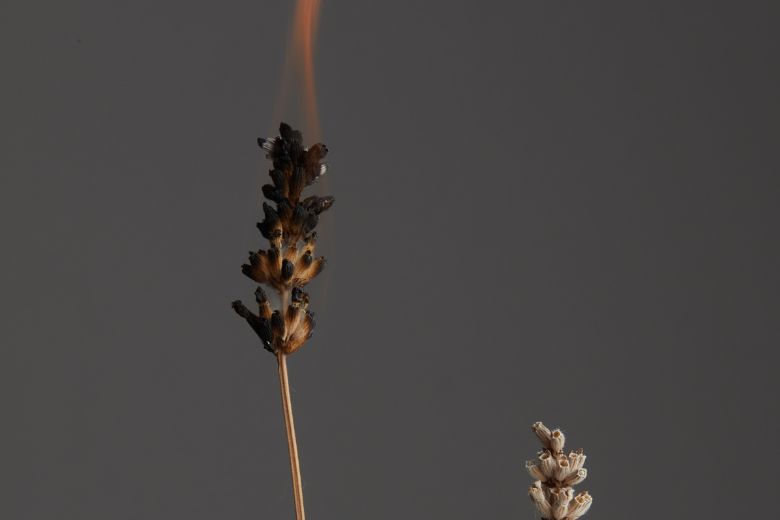
Lavender is a popular herb renowned for its pleasant fragrance and array of potential wellness benefits. While lavender is commonly used in aromatherapy, teas, and other topical applications, many wonder if lavender can also be safely burned. This blog post will explore whether or not you can burn lavender, as well as discuss some safety considerations and tips for doing so.
Can Lavender Be Burned?
The short answer is yes – lavender can be safely burned. Unlike some other herbs, lavender plants do not contain volatile oils or compounds that make them hazardous to burn. Lavender oils are gentle enough that they vaporize when heated without producing toxic fumes. This makes lavender an ideal herb for burning in various formats, like candles, incense, and diffusers.
However, there is one thing to note: not all lavender products are suitable for burning. Dried lavender flowers, essential oils, and other concentrated extracts should never be burned directly due to potential safety hazards. Only purpose-made lavender candles, incense, or diffuser blends containing diluted lavender oil are considered safe to ignite. Raw dried lavender flowers are best used in sachets or placed around the home to release their fragrance naturally through evaporation.
Benefits of Burning Lavender
When burned correctly, lavender provides a soothing aromatic experience with several perceived wellness advantages. Some potential benefits of burning lavender include:
- Relaxation and stress relief: Lavender’s calming scent has been shown to help relax the body and mind when inhaled.
- Improved mood and focus: Early research links lavender aroma to enhanced cognitive performance and mood.
- Insomnia relief: The aroma of burning lavender may aid restful sleep when inhaled before bedtime.
- Pain management: Inhalation of lavender essential oil has demonstrated pain-relieving effects in some clinical trials.
- Natural air freshener: Lavender’s fresh, floral scent purifies indoor air and eliminates odors when diffused or burned.
- Insect repellent: Some studies find lavender oil fumes deter various bugs, including mosquitoes and moths.
While more research is still needed, many people report feeling various relaxation-boosting effects from inhaling the smoke or vapor of lavender. Burning it to disperse the fragrant aroma throughout a room can be a soothing way to relax the senses.
How to Safely Burn Lavender
If you decide to burn lavender, you need to do so carefully using products intended for this purpose. Here are some tips for safely burning lavender:
- Only burn lavender products formulated for ignition, like candles or incense. Don’t burn dried flowers, essential oils, etc.
- Place lavender candles or incense in stable, non-flammable holders on surfaces away from drafts, fabrics, children, and pets.
- Light the wick or end using a long match or BBQ lighter. Extinguish any residue.
- Keep lit candles in sight and extinguish them if they smoke excessively. Don’t leave it unattended.
- Use a Lavender Diffuser Oil designed for heat diffusion to add a few drops of lavender essential oil to a warm diffuser.
- Ventilate the room where burning to disperse any concentrated fumes. Never use near oxygen or in very confined spaces.
Note:
As with any burning products, exercise caution and common sense regarding placement, supervision of open flames, and ventilation.
By choosing quality lavender products meant for ignition and taking basic safety precautions, you can enjoy the relaxing effects of burning lavender aromatherapy in a responsible manner. Always extinguish open flames before leaving the area or going to sleep.
Additional Ways to Use Lavender Aromatherapy
While burning is one way to benefit from lavender’s calming fragrance, there are several other safe application methods as well:
- Place dried lavender flowers or sachets in closets, drawers, and around the home. Their scent will permeate naturally.
- Add 5-10 drops of lavender essential oil to a bowl of warm water and position in rooms for a calming atmosphere.
- Massage 2-3 drops of lavender oil diluted in carrier oil onto the temples, neck, wrists, or bottoms of feet.
- Add 6-8 drops of lavender essential oil to bathwater for a soothing soak before bedtime.
- Use a room diffuser, reed diffuser, or essential oil burner designed for cool diffusion instead of burning.
- Brew lavender tea by steeping 1-2 teaspoons dried flowers in hot water for 10 minutes.
- Apply a diluted lavender lotion or body spray after bathing for an all-day aroma.
Experiencing lavender through non-burning methods offers similar therapeutic effects without safety concerns. Choose options suited to your intended use and comfort level.
Lavender Safety Considerations
While lavender presents few hazards when used appropriately, you need to remember some key safety considerations:
- Essential oils are highly concentrated and can cause skin/eye irritation at full strength. Always dilute before applying topically or inhaling.
- Babies and very young children should not use or be exposed to lavender or its essential oil due to developing bodies.
- Those with plant or fragrance allergies should avoid direct contact or inhalation of lavender. The patch test was diluted first.
- Pregnant or breastfeeding women should consult a healthcare practitioner before using aromatherapy like lavender.
- Ingesting essential oils is dangerous. Only consume lavender products intended for internal use, like teas or supplements.
- Discontinue use if you experience headaches, nausea, or other adverse reactions.
Used judiciously and as intended, lavender provides many soothing benefits. But follow dilution guidelines, safety tips, and caution whenever enjoying lavender products through any method. Consult a doctor with any health questions.
Conclusion
More or less, burning certain prepared lavender products can release their relaxing scent while posing minimal hazards if done carefully. A variety of non-burning application methods also allow reaping aromatherapy advantages from this versatile herb. With safety and proper dilution in mind, lavender aromatherapy holds relaxing potential when included as part of a calming self-care routine.






One Comment